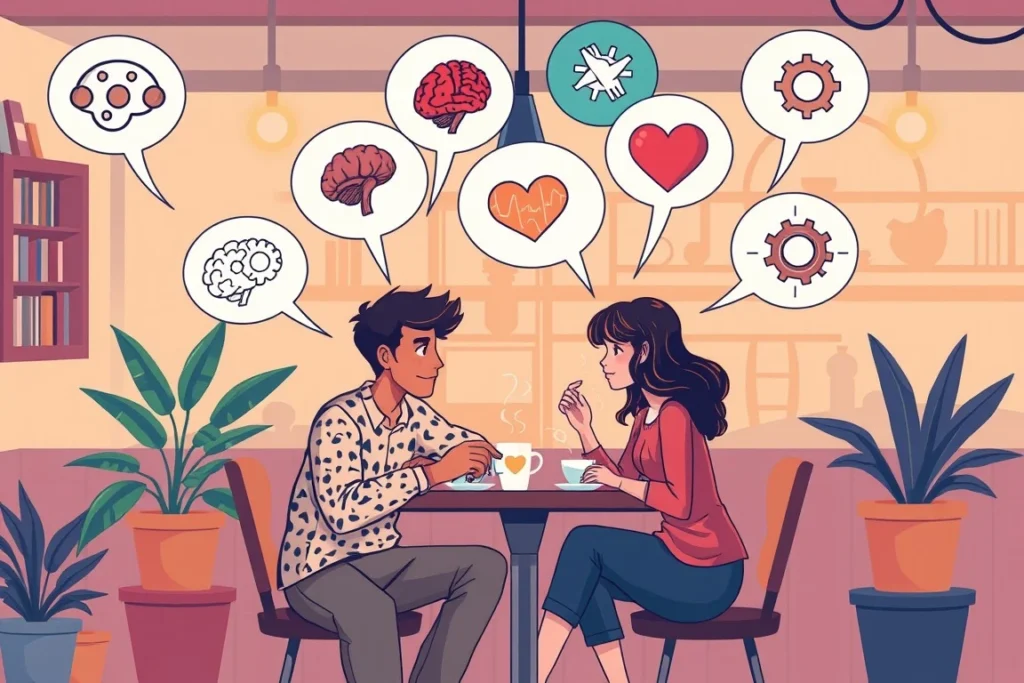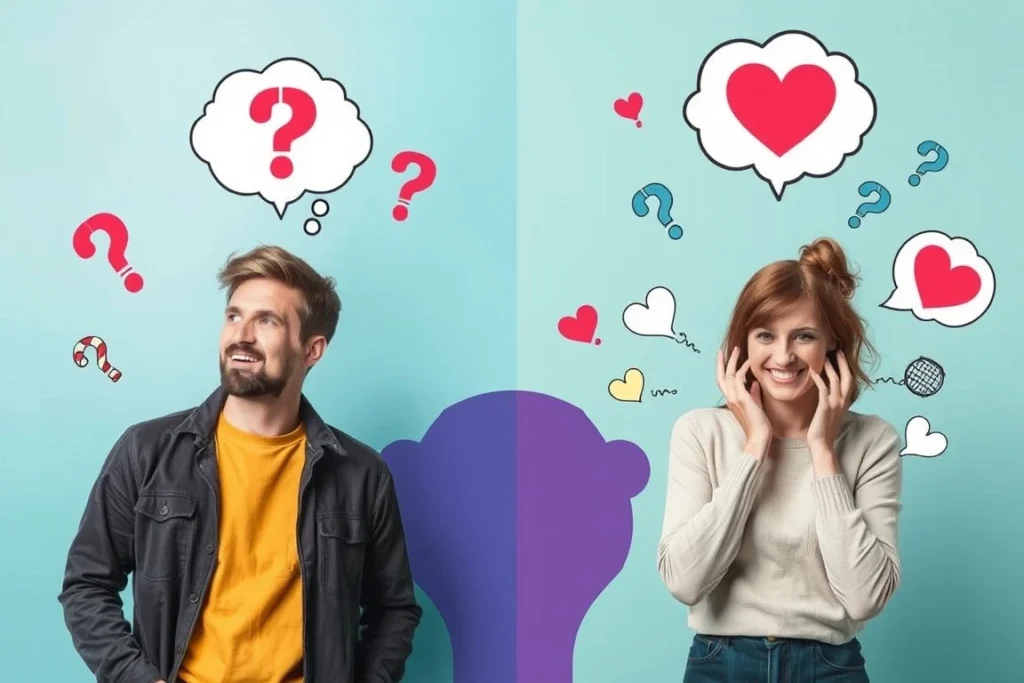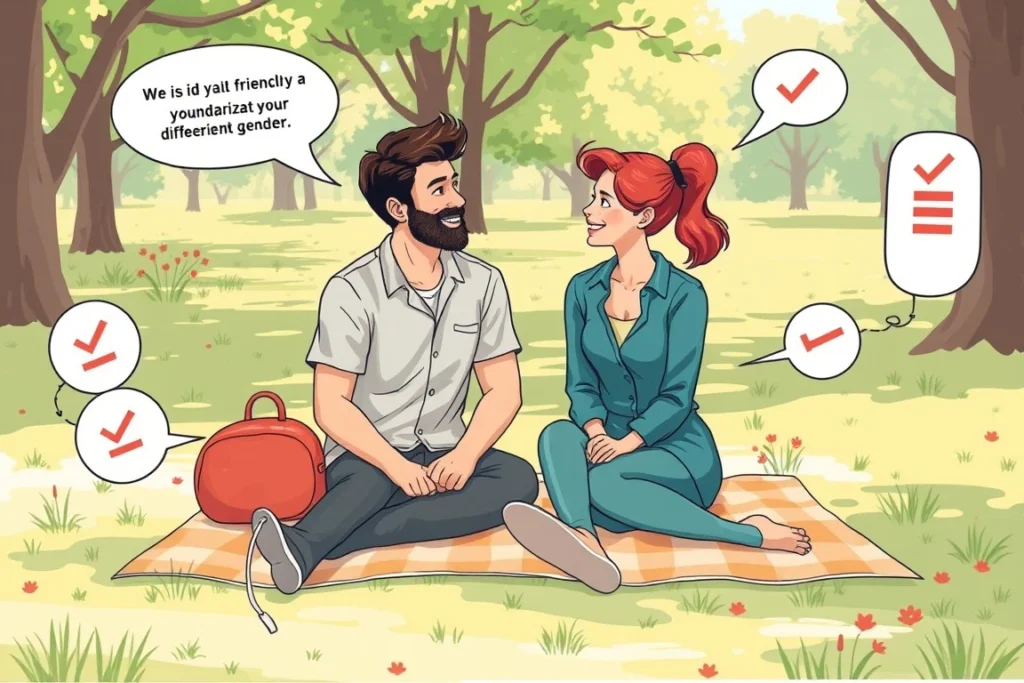Building platonic relationships between people of different genders is a topic that often sparks debate and curiosity. Can people of different genders be friends without romantic involvement? This question has been asked countless times and has led to differing opinions across society. While some insist that individuals of different genders can’t maintain a friendship without romantic feelings eventually developing, others argue that deep, meaningful platonic friendships across all genders are not only possible but essential for personal growth and connection.
In this article, we’ll dive deep into the psychology behind these friendships, exploring the dynamics, benefits, and potential challenges of such relationships.
1. Understanding Platonic Friendships Between People of Different Genders

The idea that people of different genders can be platonic friends has been around for centuries. However, pop culture, films, and even societal norms have sometimes skewed this concept, making it seem like friendships between people of different genders always have romantic potential. This oversimplification ignores the rich, multi-dimensional nature of human relationships.
In fact, friendship psychology between people of different genders offers insights into how all individuals, regardless of gender identity, can mutually benefit from each other’s companionship. These friendships often challenge traditional gender roles and allow people to explore different perspectives and emotional intelligence.
2. The Social Perception of Friendships Between Different Genders
In many circles, people of different genders can be just friends without raising eyebrows. But in other settings, especially in more conservative or traditional cultures, friendships between individuals of different genders may face scrutiny. People may question the intentions of both parties or suspect that romantic feelings will inevitably surface. This creates unnecessary tension and pressure on a simple friendship.
Despite this, many individuals form close, trusting bonds across genders. These relationships can help break down stereotypes about emotional distance or sensitivity and allow people to gain a broader understanding of one another.
3. The Psychology Behind Friendships Between Different Genders

From a psychological standpoint, friendships between people of different genders are not fundamentally different from same-gender friendships. They are built on mutual respect, shared interests, trust, and emotional support. However, these relationships can come with added complexity due to societal norms and expectations.
According to research, different genders can bring unique qualities to a friendship. For example, some may find friends of another gender to be better listeners or offer different perspectives. This can create a dynamic that benefits both parties, as they complement each other in ways that same-gender friendships sometimes don’t.
However, friendships between different genders can occasionally face challenges if others around them interpret their closeness as something more romantic. It’s important for both people to establish clear boundaries and communicate openly to avoid misunderstandings.
4. Benefits of Platonic Friendships Between People of Different Genders
Can people of different genders be just friends? Absolutely. Here are some of the key benefits of having platonic friendships between genders:
a) Diverse Perspectives
A friendship between people of different genders offers a wider range of perspectives. Each individual brings their unique experiences and viewpoints to the table, which can enrich the friendship and lead to greater understanding.
b) Emotional Support and Empathy
Friendships between different genders are often grounded in emotional support. People may find it easier to express their vulnerabilities to a friend of another gender, deepening their emotional connection without any need for romantic involvement.
c) Breaking Down Gender Stereotypes
Traditional gender roles have been slowly eroding, and friendships between different genders contribute to this change. These friendships allow individuals to challenge outdated stereotypes and interact more freely, without the pressure of conforming to societal expectations based on gender.
d) Expanding Social Circles
Having friends across genders can enrich your social life. You are more likely to meet diverse groups of people, gain new perspectives, and develop a well-rounded understanding of life. Platonic friendships can serve as gateways to new connections and experiences.
5. Challenges to Friendships Between Different Genders

Despite the many benefits, can people of different genders maintain platonic friendships without complications? Yes, but challenges can arise. Here are a few common obstacles:
a) Miscommunication or Mixed Signals
Friendships between different genders can become complicated if one person starts to develop romantic feelings while the other does not. It’s easy for mixed signals to occur if boundaries aren’t clear. While attraction can naturally develop in any close relationship, it’s important to have honest conversations to ensure both people are on the same page.
b) Jealousy From Partners
If one or both individuals in a platonic friendship are in romantic relationships, their partners might feel uncomfortable with the closeness. This can lead to feelings of jealousy or suspicion, especially if the friendship is not clearly defined. It’s vital to maintain transparency with romantic partners and ensure they feel secure in the relationship while respecting the boundaries of your friendship.
c) Societal Pressure
Even in progressive societies, the notion that people of different genders can be just friends is sometimes met with skepticism. Others may assume that there’s more to the friendship, especially if the two individuals are particularly close. This external pressure can make the friendship feel strained, even if both people are genuinely only interested in a platonic bond.
6. How to Maintain a Healthy Platonic Friendship

Given the potential challenges, how can people successfully maintain healthy, platonic relationships across different genders?
a) Set Clear Boundaries
One of the most important aspects of maintaining a platonic friendship is setting boundaries. Be upfront about what you both expect from the friendship, and don’t be afraid to have open conversations about any concerns that arise.
b) Communication is Key
Consistent and honest communication is vital. If you sense that the friendship is heading in a direction that one person is not comfortable with, talk about it. This is true for misunderstandings, personal feelings, or if either person feels uncomfortable about how the friendship is perceived by others.
c) Involve Your Partner, If Applicable
If you’re in a romantic relationship, make an effort to introduce your partner to your friend of a different gender. This can alleviate potential jealousy or insecurity, and it reinforces the platonic nature of your friendship.
d) Respect the Friendship
At the end of the day, mutual respect is the foundation of any strong friendship. Treat your friendship across genders with the same respect you would any other relationship, and avoid behaviors that could complicate things.
Conclusion: Yes, People of All Genders Can Be Just Friends
In the end, the question, “Can people of different genders be friends?” has a simple answer: yes. Friendships across genders offer a wealth of emotional and social benefits. They allow for shared experiences, the exchange of perspectives, and personal growth that can enhance both individuals’ lives. Like any friendship, these relationships thrive when based on trust, mutual respect, and clear communication.

